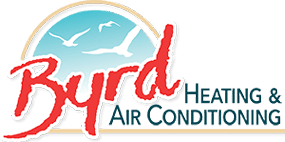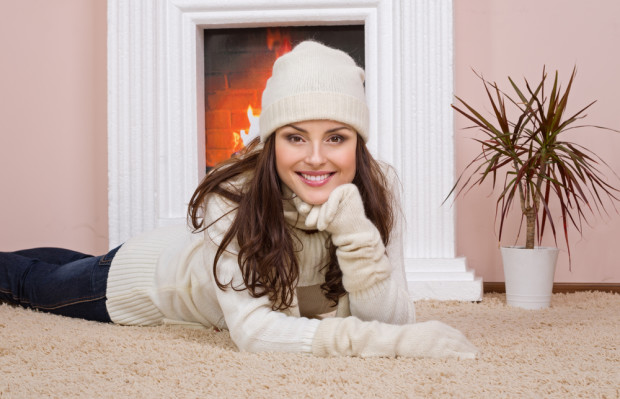When cold weather sets in, many people are tempted to raise the heat in their Savannah, Georgia, home. If you’ve had the same heating system for your home since you moved in, you may not have considered any other heating options. With some small adjustments or investments, however, you can improve your home’s heating efficiency.
When temperatures drop outside, discover the following nine heating alternatives, such as heat pumps, fireplaces, and other heating devices, for warming up the inside of your Savannah, Georgia, home.
Insulation
Insulation won’t make your home warmer this winter but the material will help you keep warm air in and cold air out of your home. Replace insulation in areas of your home, such as the attic, that tend to make your house feel colder in the winter. If you’re not certain you need to replace or add insulation to your home, consider a home energy audit.
If you have plenty of insulation in your home’s attic but your home still feels drafty or chilly, you may need to install more insulation in your walls. Although the cost of adding insulation adds up quickly, you can save money on your heating costs and increase your home’s resale value. If you’re planning on selling your home, the insulation addition and the energy-efficient upgrade are appealing to buyers. New owners won’t have to worry about replacing insulation, and your home can be a more energy-efficient space.
Space Heaters
Space heaters don’t top the list for continual heating efficiency, but if you want to heat a small room, space heaters are likely a cheaper alternative to turning up the thermostat in your home. You may need to watch your electricity bills carefully when using a space heater, as overusing the heater can cause increases in your home’s electricity bills. Through some experimenting, you can balance the need for a space heater and the overall temperature inside your home.
Space heaters are especially useful for small areas that need more warmth than the rest of your house. Rooms such as your kitchen may be naturally warmer while a nursery or home office may need a little extra heat during the day or night. Space heaters are typically small enough to move from room to room during the day or night as necessary.
Heat Pumps
In milder climates, heat pumps are one of the most efficient ways to heat your home. While gas furnaces generate heat, heat pumps transfer existing heat, using much less energy in the process. Many heat pumps also use alternative heat sources when the weather gets too cold for a heat pump to run efficiently. Fortunately for Savannah residents, the weather typically doesn’t get as cold as the mid-Atlantic and Northeast states to need a second heating source often.
Mini-split systems or ductless heat pumps are becoming a popular choice in the South for their energy efficiency. You can place these systems in each room so that you have more control over the heat in your home. If you’ve been using a furnace to heat your home, you may want to consider upgrading to this type of heat pump instead, which will likely help you save money on your bills.
Fireplaces
Fireplaces are some of the best and worst ways to heat your home this winter. While some fireplaces are purely decorative, if you have a working fireplace, you can heat your home affordably as long as you have access to wood sources. Unfortunately, fireplaces only warm one particular room. If your home is well-insulated, a wood burning stove may be enough to heat your home.
Consider safety when using your fireplace, and make sure you always extinguish the fire completely before leaving the room or going to bed at night. Safety is an important consideration, but energy-efficiency is also something to think about with your fireplace. You also need to be vigilant about making sure your fireplace doesn’t allow cold air to enter. Make sure you close the damper when you are not using it, so you don’t get drafts that make your house colder instead of warmer.
Ceiling Fans
Most ceiling fans offer the ability to rotate the opposite direction in the winter. This reverse function pushes the air down instead of circulating the air through the room. Since hot air rises, switching your ceiling fan direction pushes the air down where you need it, instead of allowing the air to float near the top of the room.
Heavy Curtains
During the winter, consider upgrading your window treatments to heavy curtains to prevent cold air from leaking in through the windows. Even if you have heavy-duty windows, window spaces are still places that allow cold air in and warm air out.
Fortunately, heavy floor-length curtains help prevent this transfer of air. Be careful, however, since these curtains also obstruct natural heat from entering. During the day, keep your curtains open to allow natural sunlight to serve as a heat source.
Humidifiers
When the air is dry, your home will feel colder. Although dry air isn’t typically a problem in the South, you can still use a humidifier to replace some of the water you lose during the winter. The higher the humidity in your home, the warmer the air will feel. You may realize the way humidity affects the temperature if you’ve ever been to Arizona where the high temperatures there don’t feel as hot as the humid Georgia summers.
Humidifiers help to make your air feel warmer, and they have added bonuses as well. Humidifiers help to prevent the dryness many people feel on their skin and in their nose and throat, which can be unpleasant side effects for winter. Humidifiers also help to prevent bloody noses, and they can reduce snoring. Humidifiers may also improve your air quality as well. Even in the South, where you think of the hot, humid summers, you can benefit from a humidifier in the winter as you make your home feel warmer in the process.
Heated Blankets and Warm Clothes
Depending on your furnace, heat pump, or space heater, heating your home can get expensive during the winter. Instead of keeping the temperatures raised, enlist your family to help with energy-efficiency in your home by having them dress warmer indoors during the winter.
Use heavier, warmer blankets and if you have one, set your programmable thermostat lower at night. Make sure you have blankets throughout your house and wear warm clothes in the house. When you do so, you don’t need to rely so much on your home’s heating system when you wrap yourself in the warmth of a blanket instead.
Two-Stage Furnace
If you are happy with your furnace but want a more energy-efficient unit, then consider upgrading to a two-stage furnace. A one-stage furnace tends to be inefficient in the South because you are able to only turn the furnace on or off. That lack of settings can cause you to use more gas than you need to heat your home. With a two-stage furnace, you can use the lower power to heat your home instead of wasting extra energy. As long as the weather does not become uncharacteristically cold, you have the higher setting to keep your family cozy.
While your traditional heating source may be efficient for your current needs, you could save money or improve your home’s resale value by upgrading to an even better HVAC system. Even if your HVAC unit is ideal for your home, you can still supplement that heat in other ways to see significant savings on your winter heating bill. Don’t forget that small adjustments to your daily routine can also help you save energy in your home.
If you are interested in upgrading the heating system in your home, or if you need some additional ways to heat your home this winter, the Byrd Heating and Air Conditioning team can help. Let our experts explain some of the different options and offer answers to your home-heating questions. To schedule a heating services appointment with one of our professionals, call us at 912-373-8447.
Image provided by Shutterstock


